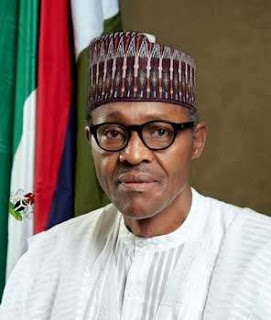Action Bias: Why Buhari Became 'Baba Go Slow'By Chuba Ezekwesili
In 3 months, the euphoria that accompanied the victory of President Buhari has largely dulled to complaints of his government’s tepidness. Why the rapid reversal?
The same reason Buhari went from being called 'Sai Baba' to 'Baba Go slow’ is the same reason goalkeepers hardly ever just stay in the middle when a penalty kick is taken. You might ask, 'why should they stay in the middle? The player usually kicks it to the right or to the left’.
Actually, players kick the ball to all sides of the net with roughly the same frequency. Meanwhile, goalkeepers consistently dive to the right or to the left even when they know there’s a fair chance the ball could be placed down the middle. According to Rolf Dobelli’s ‘The Art of Thinking Clearly’, this is mainly due to our bias for action. And that usually has to do with appearances.
Appearance? Yes. We make a number of decisions based on how the outcome would look. People judge the keeper less harshly if he dives either left or right even if it is the wrong way, and are harsher on those who appear to do nothing by standing in the middle. So even if he is indeed doing something, it doesn’t look like he’s trying.
As humans, we dislike doing nothing when faced with uncertainty, so when a new or uncertain event occurs, we’d rather do something – even when it puts the situation in jeopardy.
It's why Nigerian policemen round up anyone and everyone around a robbery scene even when it is fair to assume that the culprits would not be hanging around the scene of the crime.
It’s why a number of Nigerian doctors prescribe medication even when unsure of the ailment, rather than wait to gather more evidence. Consequently, people have died from doctors’ hasty misdiagnosis. Even if it might worsen things, at least they’re doing something, right?
It's why a number of projects run by development institutes, state and federal governments end in a tremendous blaze of failure despite the initial hype. The incentives are wrongly placed on executing projects, and not on the outcome of projects. So project heads, ministers or governors are more likely to fall for the action bias and do something rather than do nothing – even if that something is useless or makes things worse.
And when they do fall for this action bias, it means skirting due diligence practices such as cost-benefit analysis, risk management, cost management or assurance of result. Amaechi’s monorail project might be an example of such. The amount spent on the monorail has been far too excessive for the distance covered.
It also shifts incentives from enacting better policies – which are less press worthy, to public displays of activity such as building new universities. New buildings make for splendid photo opportunities, even in cases that call more urgently for structured and circumspect policies. Consequently, priorities are misaligned.
President Buhari seems to understand the danger of the action bias and has attempted to quell the murmuring of those who call for a show of action. Amidst the seeming slumber of the government and intensified suicide bombings, the patience of Nigerians wears thin. He won the elections on the promise to change Nigeria by tackling growth, security and corruption. Given how high his campaign raised the expectations of Nigerians, a substantial level of action bias is inevitable.
Speaking in his Eid-El-Fitr message to Nigerians, Buhari said “There is indeed much work to be done, but we must do it well and carefully to ensure that the great opportunity which we now have is not lost to the 'business as usual' group who selfishly or shortsightedly prefer a status quo that panders to their personal or group interests.”
And indeed, he is right. In the midst of the mess of governance inherited from previous administrations, the proper course of action could be to first become fully cognizant of the situation and then, meticulously assess the available options. He has inherited a government riddled with run-down institutions, incredibly high overhead costs, and coffers dwindled from years of mismanagement and corruption. Restoring some semblance of sanity will require time and deliberate action.
However, he will need to understand that in the midst of Nigeria's uncertainty, the people’s bias for action will only grow stronger, and rightly so. He has been unnecessarily coy on his short-term plans for the country. He could have reduced expectations for immediate action in the first few weeks of his presidency by clearly communicating his intentions to take his time. Also, given that he has not appointed any Ministers, he could be clearer on his plans for the economy – investors have a precarious sense of confidence, and assurance is undoubtedly needed.
Moreover, his media team has done an unsatisfactory job of conveying the significance of the actions he has already taken. When people are starved for action, it is important to demonstrate how your actions so far can satisfy them. When the keeper catches the ball in the middle, people still cheer. Buhari will need to demonstrate that his unusual methods hold the promise of a greater future for Nigeria.


Comments
Post a Comment